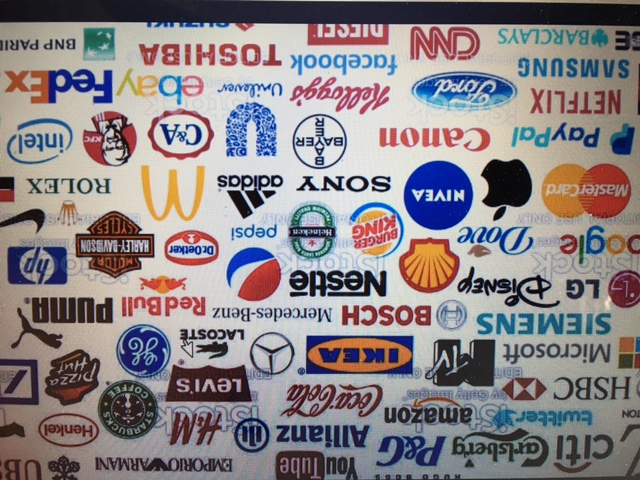With a swiftness uncharacteristic of corporate America or the global business economy, international brand names are exiting Russia. Global energy producers BP, Shell, and Exxon announced they were ceasing operations in Russia; leaving billions of dollars in profit on the table.
The overwhelming condemnation of the Russian invasion of Ukraine two weeks ago and the nearly universal revulsion for Russia’s barbaric siege of Ukrainian cities and Ukrainian civilians has been shared and magnified by corporate America and the world’s largest corporations.
American Express, Mastercard, and Visa announced they would cease Russian operations. Apple Pay and Google cut their Russian operations. Major accounting firms have pulled out.
If you are Russian and you are used to using your mobile phone and Apple Pay to get on the Moscow subway, you are out of luck. Want to take money out of the bank? The Russian ruble is now worth about one penny.
McDonalds, which has more than 800 stores in Russia, opened its first one there in the summer of 1991, the year the Soviet Union disintegrated. It announced last week that it is closing them all. It is joined by Starbucks, IBM, Amazon, Goldman Sachs, Ikea, Adidas, Expedia, Pepsi, and Coca-Cola, the leading edge of nearly 300 corporate brands expressing their rejection of the Russian aggression.
Disney, Warner Brothers, and Spotify are among a growing list of entertainment brands pulling out. The sports brands have reacted strongly, cutting off Russian athletes and teams from competition, and canceling tournament events in Russia.
What do these corporate brand names have in common? Only their belief that Russia is wrong. They are acting with rare corporate conscience. By all accounts, the sudden withdrawal of the brands they have come to know and love is having an impact on Russian civilian life.
At the same time, BBC Europe and Radio Free Europe are attempting to reestablish contact inside Russia so that the truth of the invasion — the barbaric siege of Ukraine’s cities, the indiscriminate bombing of civilians — reaches the Russian people, who are hearing only the Kremlin propaganda that Russia is not the aggressor in what it calls a “strategic military operation”.
Some 141 nations of the United Nations condemned the unprovoked attack. Within a day of the attack, governments across the world, including the European Union, NATO members, and dozens of other nations across the world, began instituting economic sanctions against Russia. The international banking transaction entity SWIFT pulled out of Russia, and on Wednesday, the U.S. announced a total boycott of Russian oil, natural gas, and energy.
Research polls show that the American people overwhelmingly support the U.S. government sanctions; within a few days of Russia’s invasion, a Quinnipiac University Poll showed 71 percent of those surveyed said they were opposed to Russia’s actions and would support NATO response. A week later, a Wall Street Journal poll, showed 74 percent of Americans said they supported the U.S. stopping Russian oil, and natural gas imports. A high percentage of Gen X and the generation coming behind it are strongly opposed to Russia’s aggression.
Such broad opposition to a clear attack on democracy and on a civilian population is a rare sign of unity in this country. Such broad corporate agreement against Russian aggression is also a sign that corporate America and Europe are listening to their employees, especially the young workforce who have signaled for the past several years that they expect corporate brands to exercise a social conscience.
Some may ask; what does this have to do with us?
First — whether to stand for or against democracy is the question of our times.
Second — that the sanctions are going to cause even higher gas prices is a reality; there is no way they won’t. But again, the majority of Americans say they understand and support the sanctions because they support Ukraine. How long that will last, is anyone’s guess.
Third — come fall, when the broad southern wheatfields of Ukraine yield no grain because the Russian advance prevented planting, (Ukraine is known as the breadbasket of the world) the world will face higher grain and bread prices, and third world countries will be facing famine.
Fourth — as the Central Intelligence Agency (CIA) warned Congress in a briefing earlier this week, Americans need to be aware that as Russia continues to grind away without the rapid gains they planned, Putin may attempt false flag incidents as a pretense prior to using other, equally horrific tactics such as chemical and biological weapons. Even tactical nuclear attacks may be on Putin’s table. He is already making false claims that the U.S. and Ukraine are developing chemical weapons. None of this is true.
Fifth — as Russia lies about its genocide of a sovereign nation neighbor, and the Ukrainians continue their heroic resistance — they are going to need more help from the West. Last night the U.S. Congress approved almost seven billion dollars in military aid to Ukraine, and it is likely it won’t be enough.
We walk a fine line to avoid stumbling into a direct military conflict ourselves. But at some point, Putin is going to have to be stopped, because it appears unlikely he will do it himself.








Recent Comments